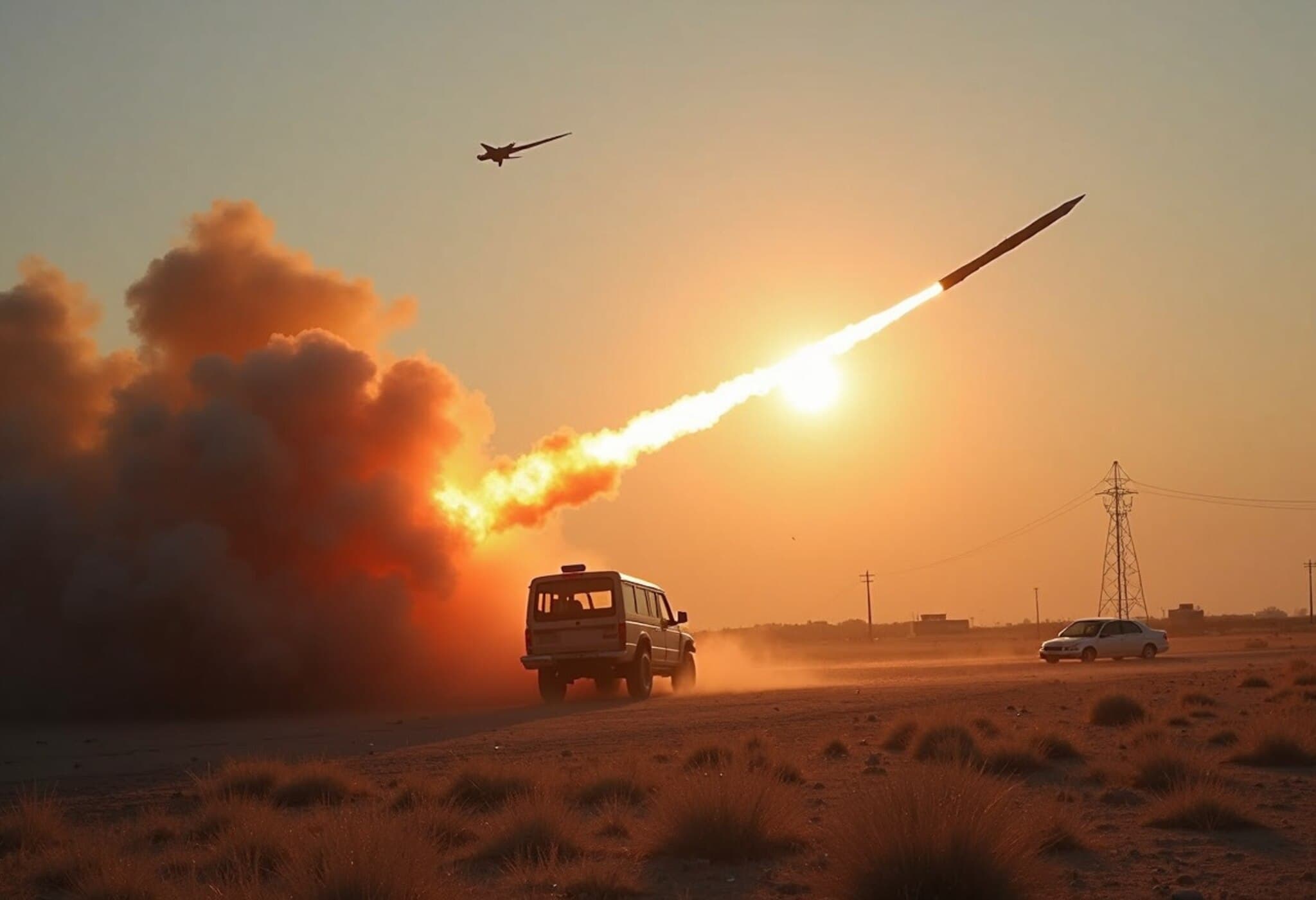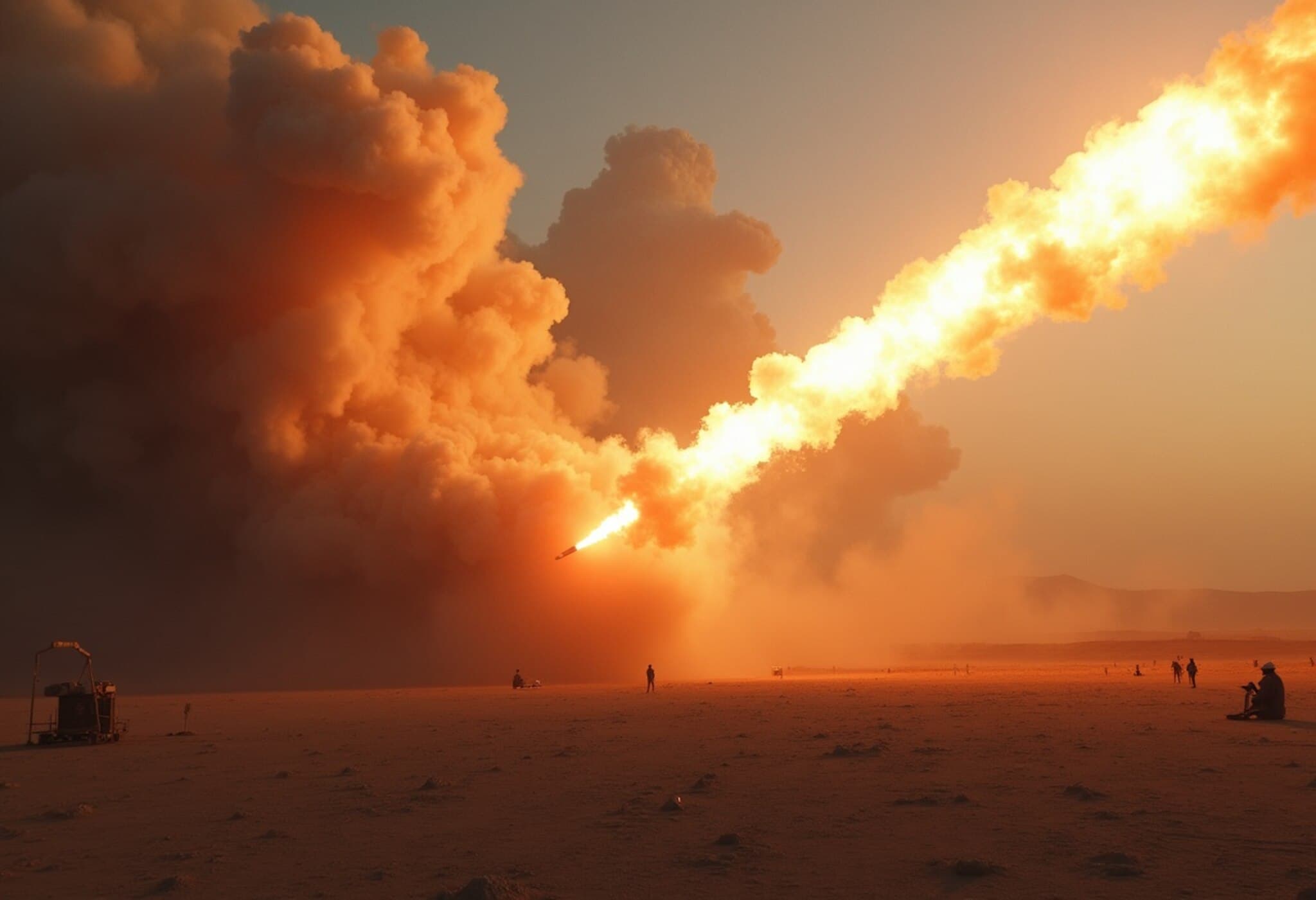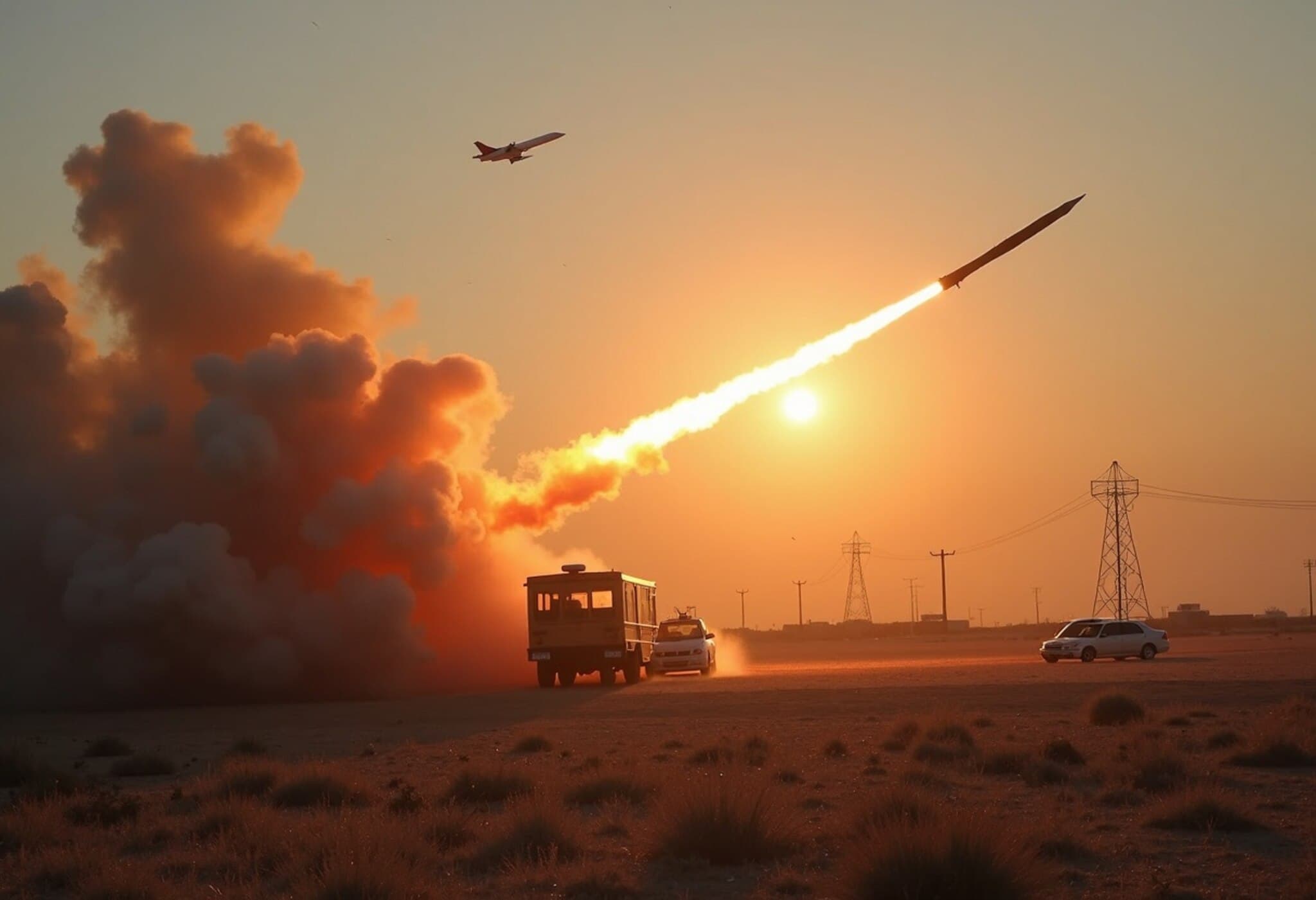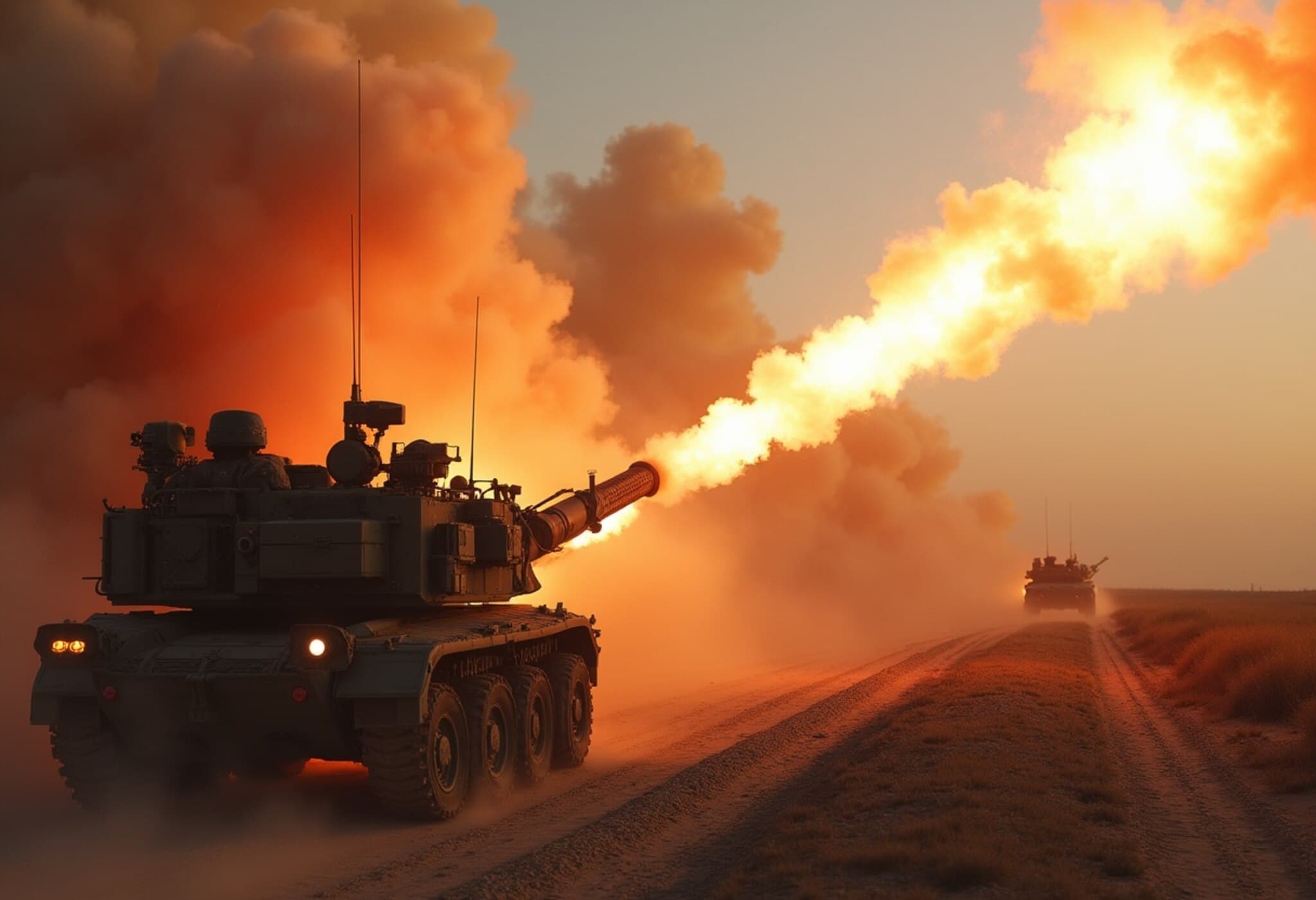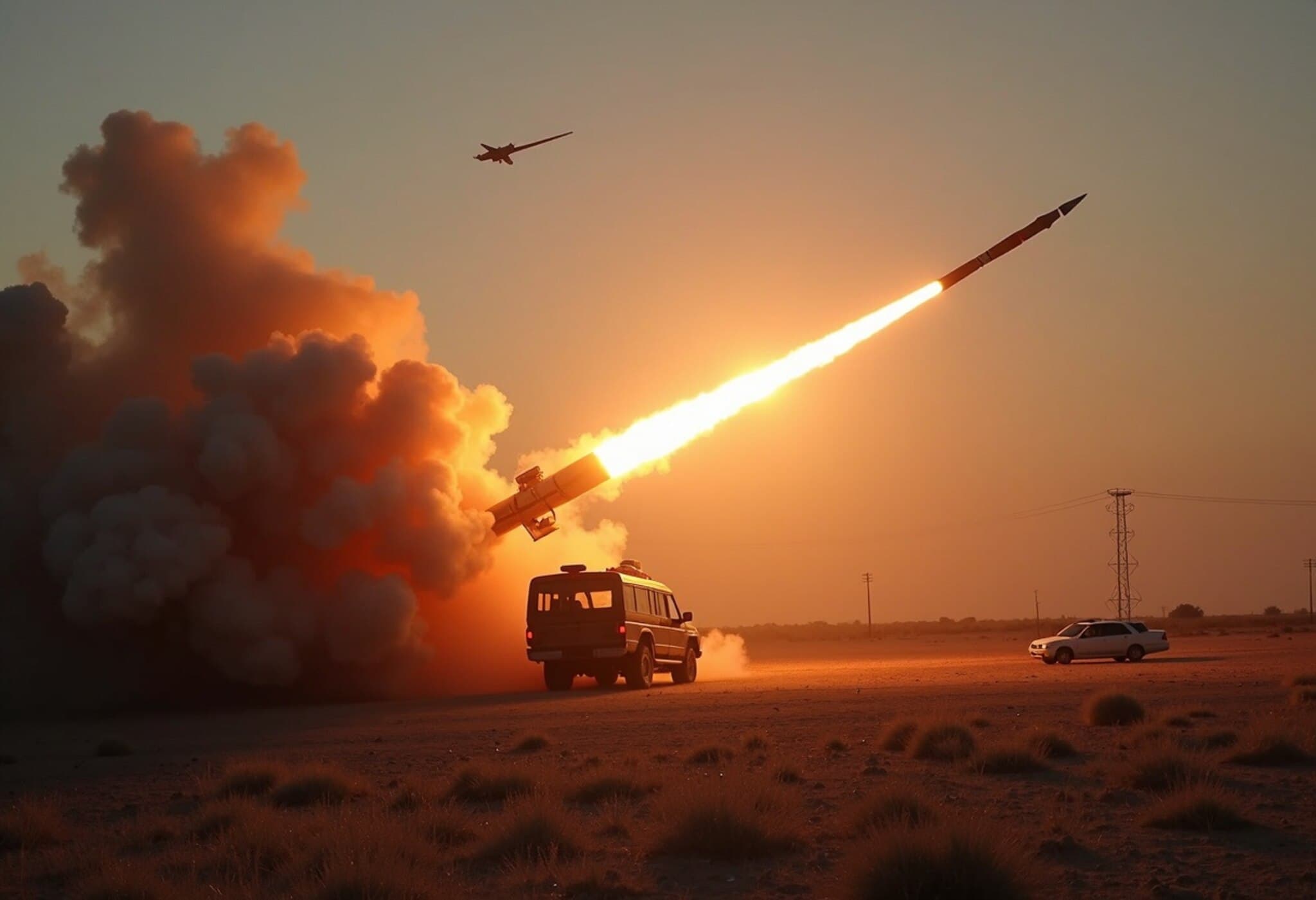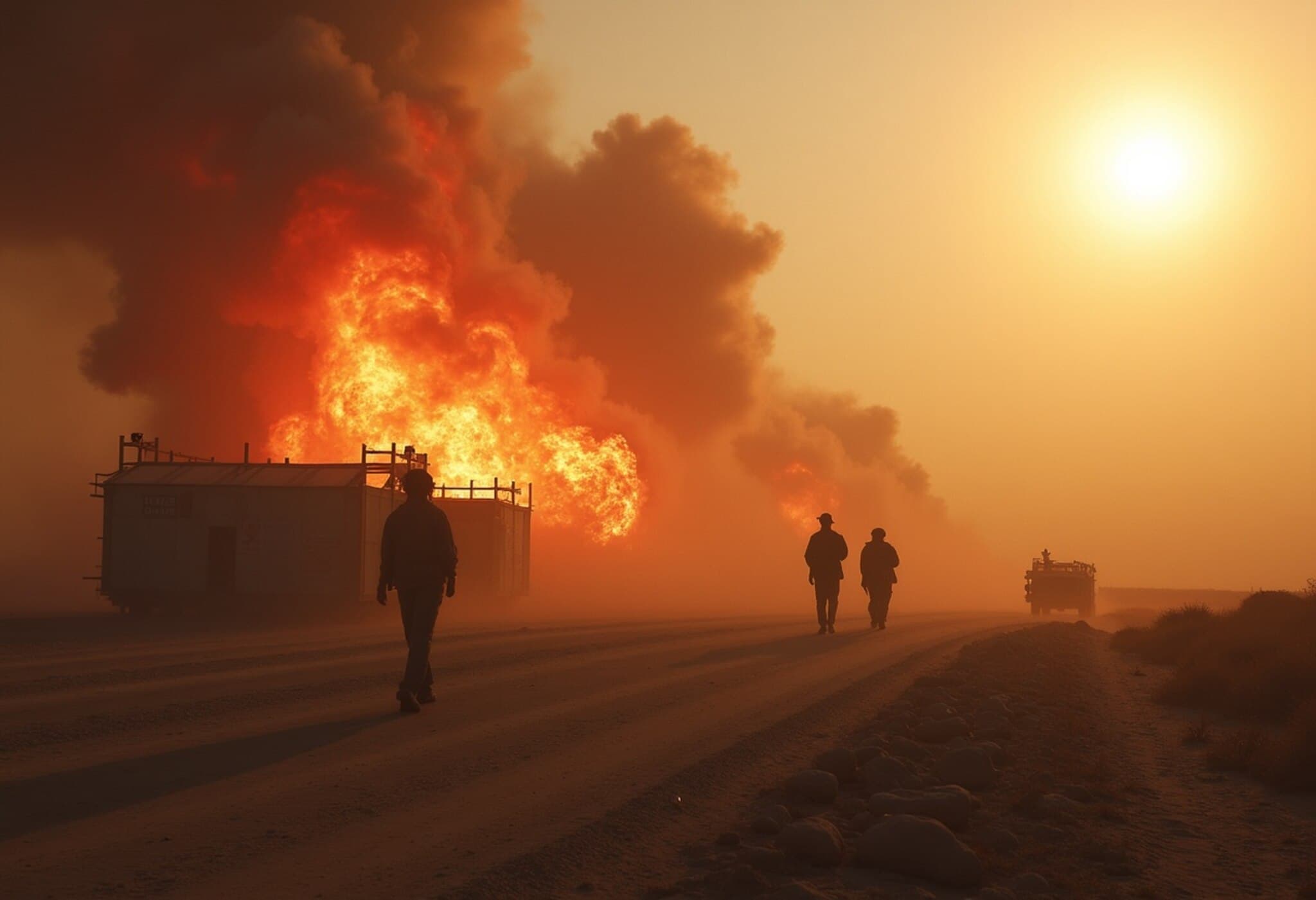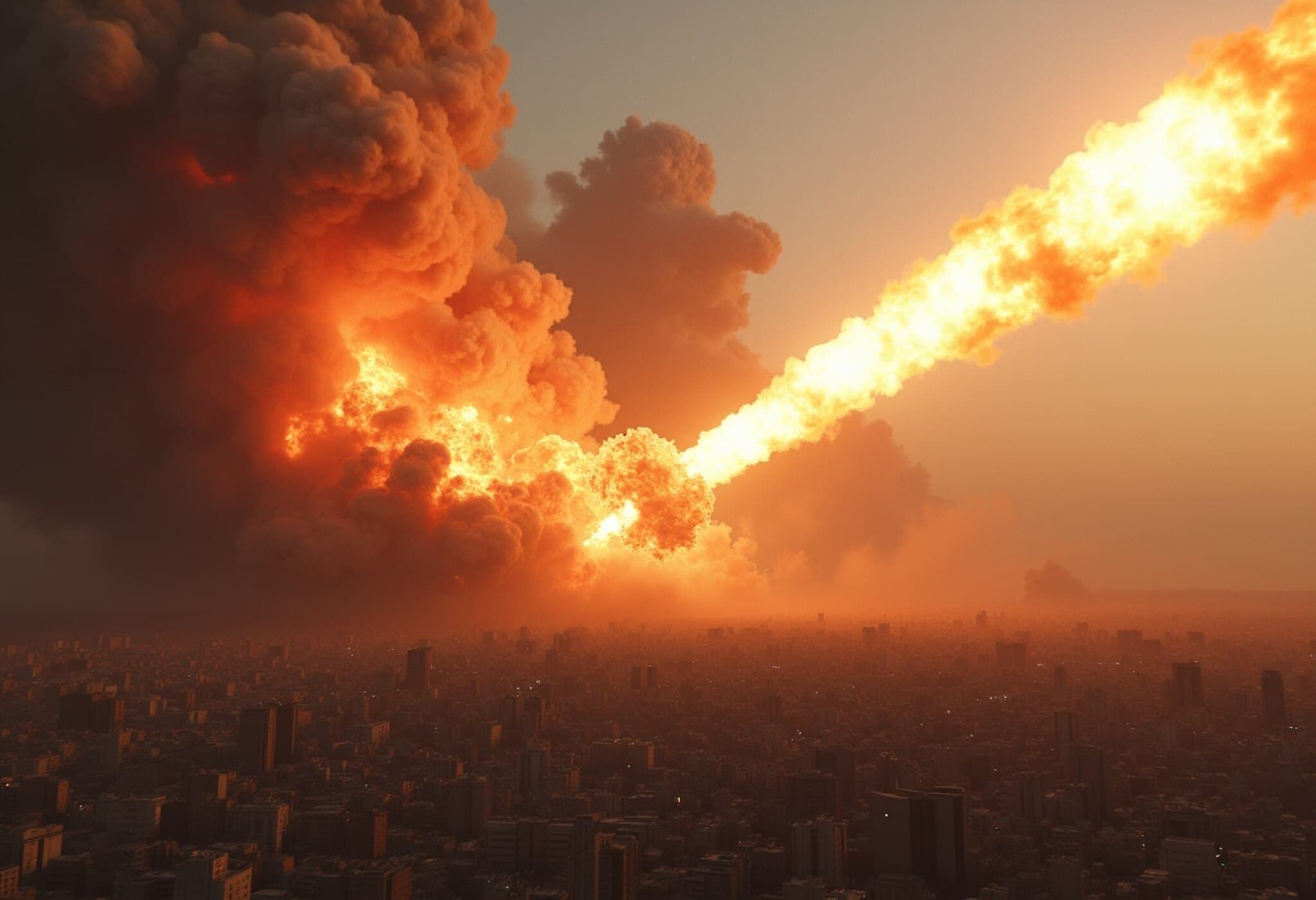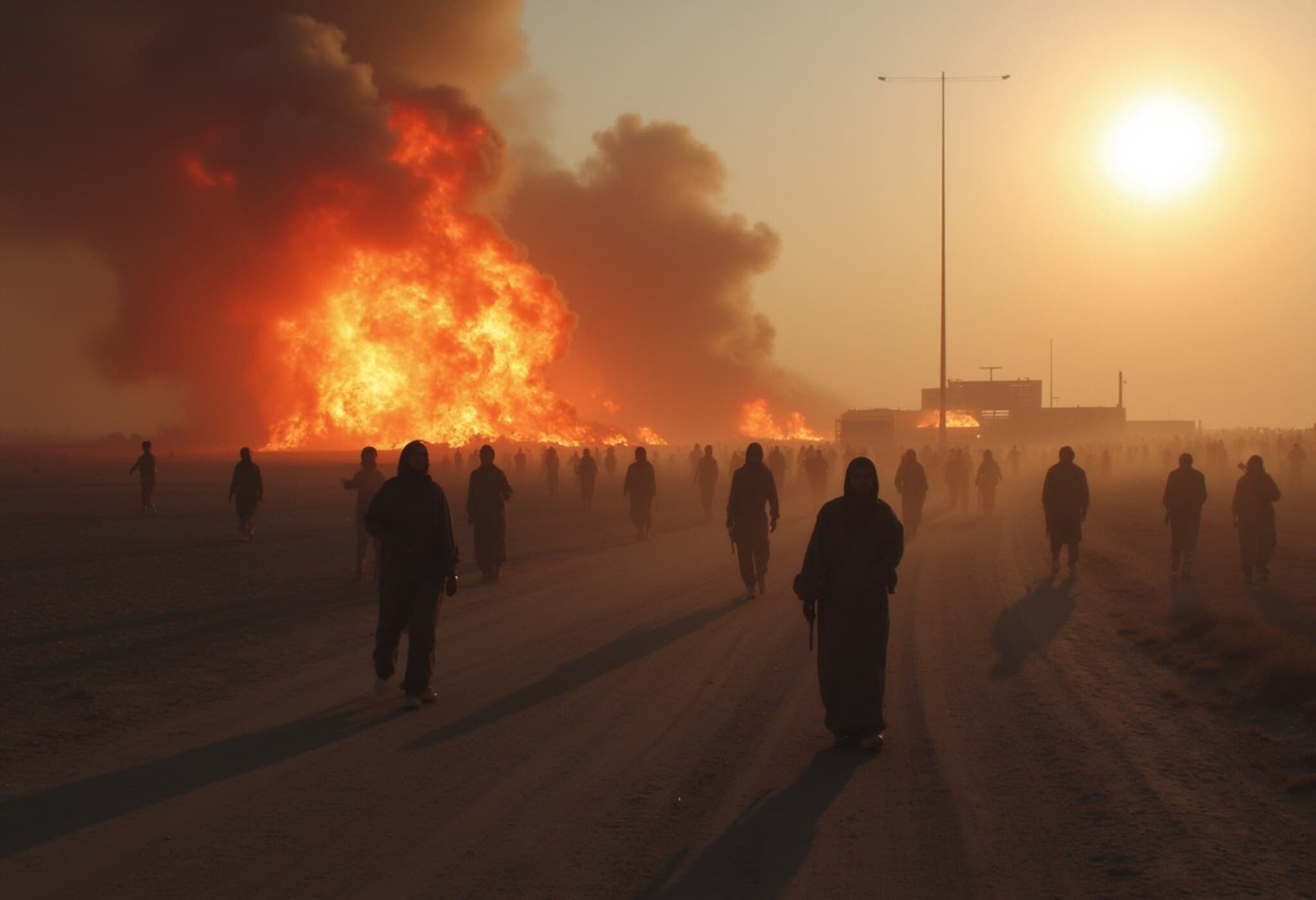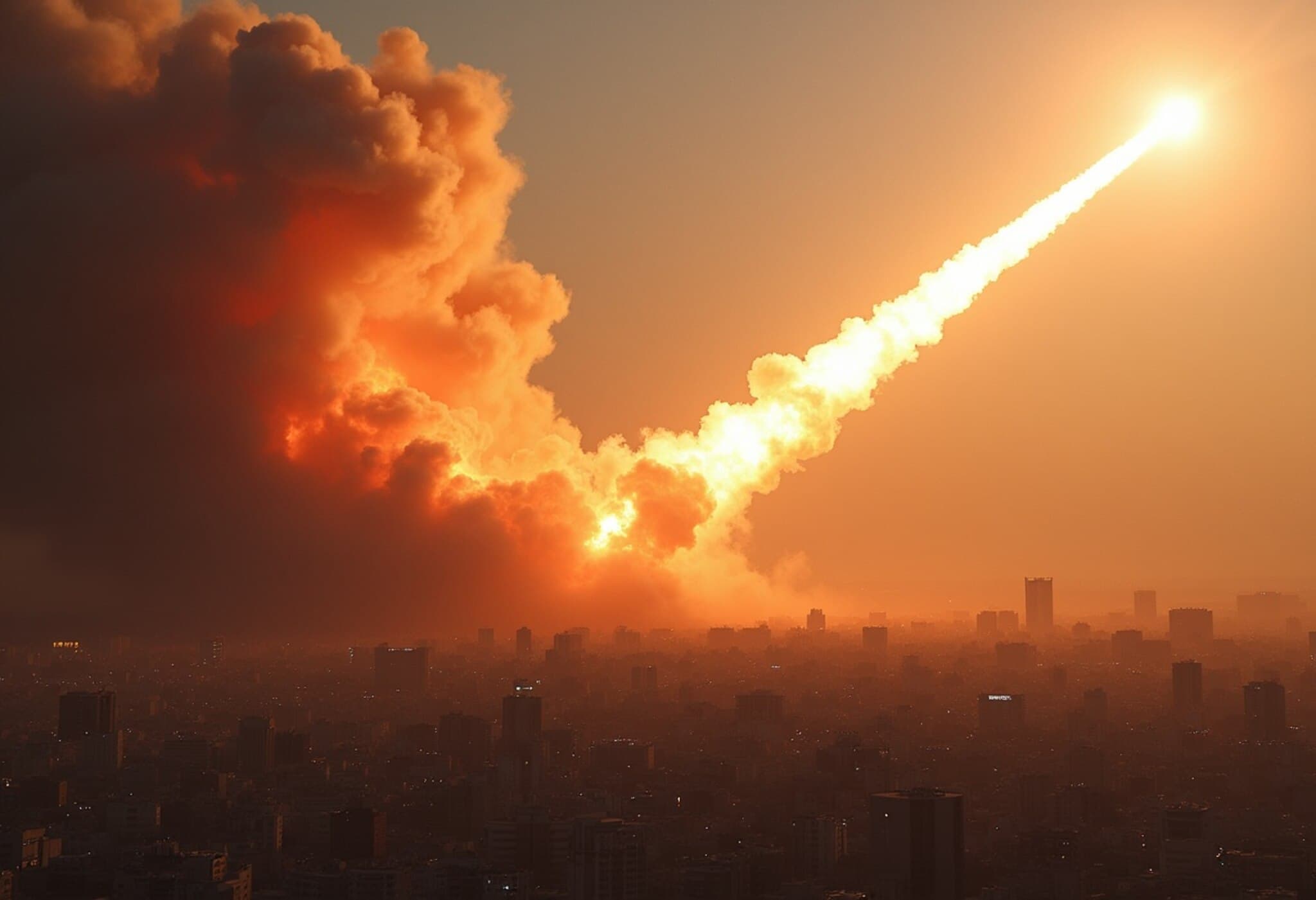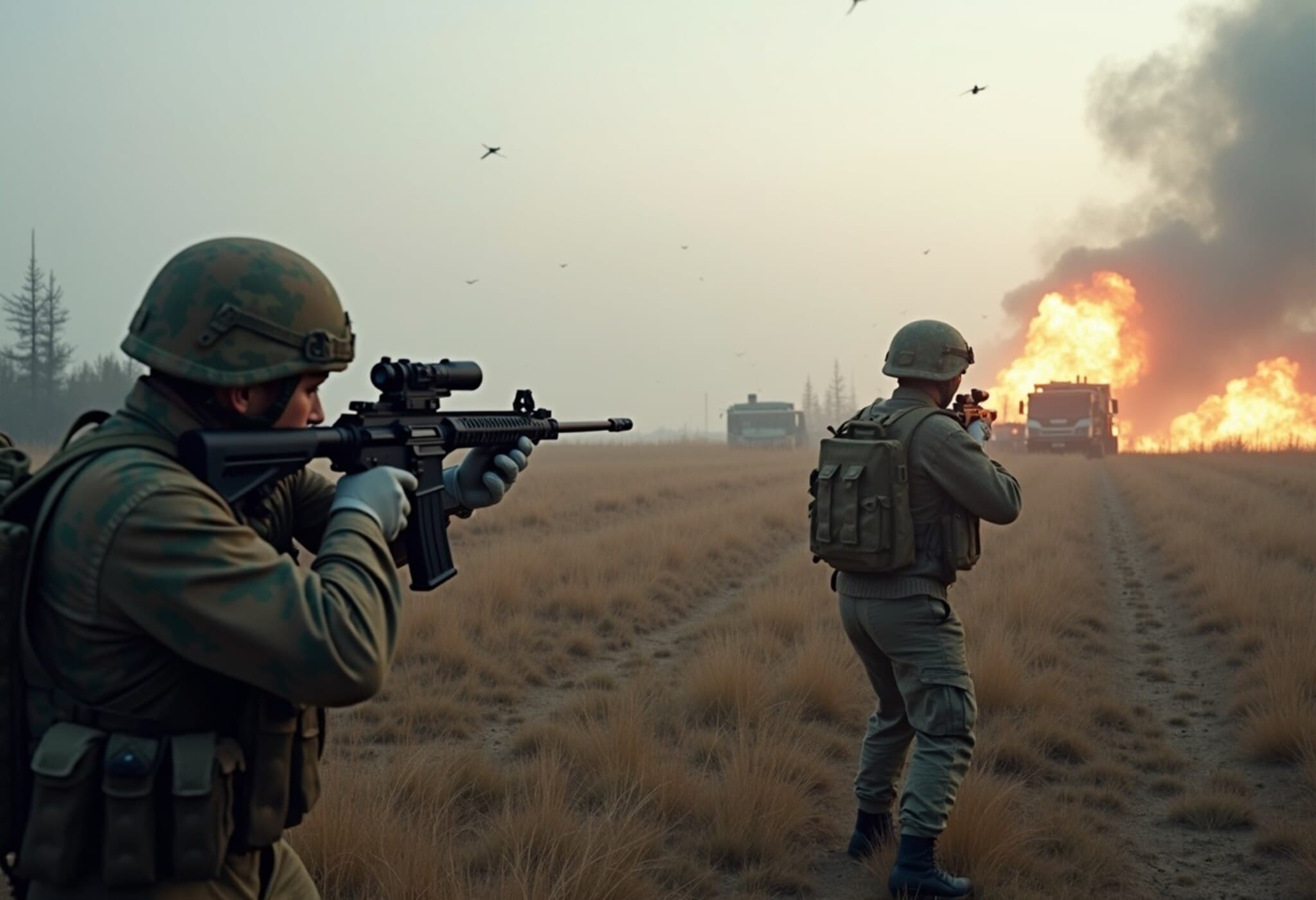Deadly Missile Barrages Mark Sharp Escalation in Israel-Iran Conflict
Overnight missile attacks by Iran against Israel killed at least 10 people, including children, and wounded nearly 200 others, escalating violence between the two nations to unprecedented levels. This exchange comes after several days of intense bombardments, igniting fears of a prolonged regional conflict.
Iran Targets Israeli Cities and Military Sites
In the early hours Sunday, air raid sirens wailed across major Israeli cities, including Jerusalem and Tel Aviv. Israeli authorities reported that millions sought shelter as missile barrages rained down from across the border. Tehran's missile strikes nailed military installations — notably sites used by Israeli warplanes for mid-air refueling — signaling a more strategic phase in their retaliation.
Iranian-backed Houthi rebels in Yemen further fuelled the tension by launching missiles toward Israeli territory, broadening the conflict’s scope beyond the immediate battlefield.
Israel Expands Its Offensive on Iranian Infrastructure
Responding to the missile onslaught, Israel broadened its target list to include Iranian air defenses and oil facilities. Strikes hit two major fuel depots near Tehran, igniting significant fires. Israeli military sources also confirmed assaults on missile launch sites around the Iranian capital.
Reports from Iranian news agencies revealed damage at Iran's Defense Ministry headquarters, hinting at the extensive reach and precision of the Israeli campaign. Casualty figures from these strikes remain undisclosed.
Nuclear Talks Stall Amid Rising Hostilities
The military clashes have dealt a heavy blow to ongoing nuclear diplomacy. Iran's top diplomat accused Israel of crossing a "new red line" by hitting nuclear sites, asserting that Israel aims to scuttle negotiations.
Just prior to these attacks, Iran and the United States had planned a new round of nuclear talks seeking to curb Tehran's nuclear ambitions. However, Iran announced it would boycott further discussions until Israel halts its offensive operations.
Western nations continue to express concern over Iran's nuclear pursuits, which Tehran denies are intended for weapon development.
Global Powers Urge Restraint Amid Rising Regional Tensions
International leaders have called for de-escalation. A high-profile call between the leaders of the United States and Russia resulted in a mutual view that the conflict "should end." Yet American officials warned Iran of overwhelming military repercussions should it threaten U.S. interests.
Iraq, caught between alliances with both Tehran and Washington, has engaged with both sides to discourage wider regional violence.
Looking Ahead
The sharp exchange of attacks between Israel and Iran signifies one of the fiercest confrontations between these longtime adversaries in recent memory. With significant casualties mounting and regional partners becoming involved, the international community watches closely, hopeful that diplomatic efforts will regain ground before the conflict spirals further out of control.

